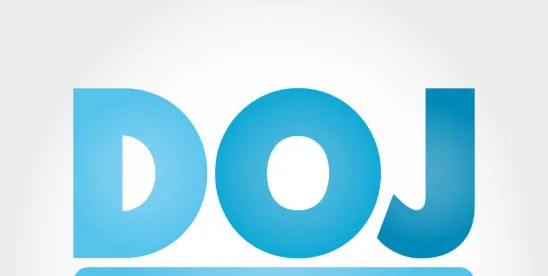On May 12, 2025, the U.S. Department of Justice (DOJ) announced revisions to its Criminal Division Corporate Enforcement and Voluntary Self-Disclosure Policy (CEP). (See Part 1 and Part 2 of this series for more information.) As a part of the new administration’s priorities and policies for prosecuting corporate and white collar crimes, the head of the Criminal Division directed the Fraud Section and Money Laundering and Asset Recovery Section to revise the CEP and clarify that additional benefits are available to companies that self-disclose and cooperate.[1]
The CEP encourages companies to self-disclose misconduct, fully cooperate with investigations, and remediate issues — and, in turn, potentially reduce their criminal exposure. Though the scope and criteria for compliance with the CEP have evolved since it was announced in 2016, a constant has been the presumption of declination for a company in compliance. This amorphous “presumption” has long drawn complaints from practitioners and companies, due to its lack of certainty in outcomes — especially weighed against the often-extensive investigations and work corporations do to comply with the policy.
The latest revision to the CEP seeks to address complaints about the lack of certainty by providing specific conditions to companies considering voluntary self-disclosure and a pathway to guaranteed declination. The revised CEP also establishes significant benefits for companies that may not meet the requisite declination requirements but fall into other categories. Understanding the nuances of the revised CEP is crucial for companies to ensure they are well positioned to benefit from the revised CEP, should a company find itself in a position to self-disclose misconduct. The key aspects of the May 2025 Revised CEP are as follows:
Declination of Prosecution
Four conditions must be met for DOJ to decline criminal prosecution of company:
- Voluntary Self-Disclosure. The company must have proactively and promptly reported unknown misconduct to the Criminal Division, without having an obligation to do so and without an imminent threat of disclosure or government investigation.
- Full Cooperation. The company must have “fully cooperated” throughout the investigation process by, among other things, timely disclosing and voluntarily preserving relevant documents and information as well as making company officers and employees who possess relevant information available for interviews by prosecutors and investigators.
- Timely and Appropriate Remediation. The company must have taken prompt and effective corrective actions, including investigating underlying conduct and root causes, appropriately disciplining wrong-doers, and implementing an effective compliance and ethics program to reduce future risks.
- No Aggravating Circumstances. There should be no significant aggravating factors related to the misconduct, such as its severity, scope, or repeated occurrence, nor recent criminal adjudications for similar offenses.
Near Miss Cases: Voluntary Self-Disclosures with Aggravating Factors
The revised CEP also creates a middle ground for companies that self-report in good faith but do not meet all other voluntary self-disclosure requirements. In these “near miss” situations, the DOJ may offer a Non-Prosecution Agreement (NPA), which typically provides the following benefits:
- A term length of fewer than three years.
- No requirement for an independent compliance monitor.
- A 75% reduction off the low end of the U.S. Sentencing Guidelines fine range.
Resolutions in Other Cases
The revised CEP also outlines a third route to resolution: If a company’s situation does not qualify for a declination or an NPA, prosecutors still have discretion to determine the appropriate resolution. This includes the imposition of penalties, term lengths, compliance obligations, and monetary fines. Prosecutors typically will apply a reduction from the low end of the fine range for non-recidivist companies that have fully cooperated and remediated the misconduct.
Why This Matters
DOJ’s message through the revised CEP is clear: Do the right thing and you will be rewarded.
A company’s timely and effective voluntary remediation and self-disclosure can now result in guaranteed declination of criminal prosecution, if the company complies with the steps laid out in the revised CEP. Companies should keep these benefits in mind not only when faced with a decision point regarding self-disclosure of misconduct but also as they proactively evaluate the effectiveness of their compliance programs and whether they are adequately resourced. Foley is here to help with your compliance and internal investigations needs, as well as counsel you through evaluating self-disclosure under the revised CEP.
[1] See Foley blog post on May 12, 2025 Criminal Division White Collar Enforcement Plan Memo.









 />i
/>i
